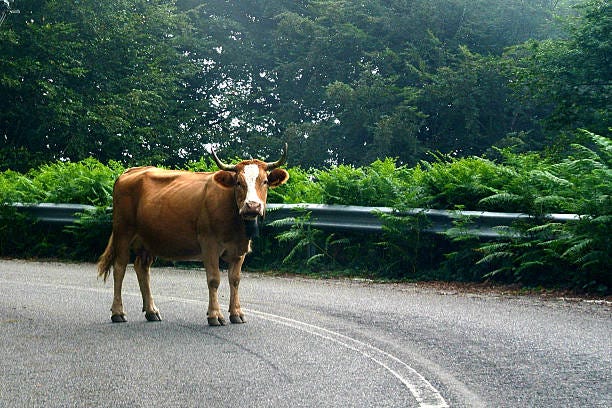Minis #2: Writer's Block in Disguise
And how to answer student questions when it's been a while since you were one
The Minis is a series of espresso-shot posts about writing, reading or the book industry. Readers are welcome to suggest topics.
During one of my school visits to a Year 8/9 cohort this past Book Week, a teacher asked me a question on behalf of her students. There’s a moment of panic for me before every question. Usually this is followed by relief: phew, I know how to answer that one! But this had me stumped.
What the teacher asked was: “How do you deal with writer’s block?”
I paused. I stuttered. I babbled. At one point I think I said: “I’m always writing, I never stop.” ie. I’m never blocked. This made me cringe on the way home, because I had a duty to give those students good advice and instead I’d been defeated by what must be one of the most familiar creative concepts.
My mistake was in thinking of writer’s block as a blank: a state of being out of words, out of story, unable to meet a deadline, gripped by a nothingness. And I don’t really suffer from that.
In adulthood we can take what we do for granted. What I needed to do in that moment was imagine myself as a kid faced with an assignment and an empty page.
I went on to realise that writer’s block is more complicated than a blank. And that I do suffer from a particular kind of it. All the time.
One version of writer’s block may look like this:
Not dedicating time to a particular story you want to write because you fear, consciously or otherwise, that you are not up to the task.
Masking this by writing other stories. Finishing some of them. Believing in these ones whole-heartedly, publishing them, fretting over them, enjoying the moments of success. All the while, blocked from telling the other stories.
Isn’t putting something off, even while you still look productive and successful on the outside, writer’s block?
What else could it look like?
Instead of writing, you fill your time with other activities, and call these the things you must do, over and above telling that story you want to tell.
This scenario is a difficult one to give generalised advice on. Of course there are things we all must do. And we may fall into the habit of giving advice about writing to people who live vastly different lives to us. Sweeping advice then becomes an potentially damaging lack of empathy.
Often I’m amazed at the speed of other writers. Are they thinking faster, typing faster, working out problems faster? Are they more committed? When I look at my output, and my decreasing responsibilities as a parent—no longer having to wait for the children to go to bed so I can write, as I did for years—I wonder if I’m more blocked than I appreciate. But I also know that I am hard on myself. And that others may perceive my output as amazing.
So, the specific kind of writer’s block I suffer from involves my walking around the obstacle to write something else. Circumnavigating the insecurity. Instead I give everything to the thing I am able to write, right now.
What does this mean to a student who can’t get off the mark on an essay or creative piece? This student could be highly conscientious, or someone who’s already convinced themselves (or been convinced by the education model) that they have no talent for writing. The pressure of the first line. “Sizzling starts”, they call them in primary school. This concept may work for younger children, who don’t have half of the insecurities and second-guessing that teenage years bring. But to those older students I’d say: save the “sizzling” for the second draft. Begin averagely, even badly! Anything to begin. A quick who and a quick where, a simple action, a single line of dialogue.
Walk around the overwhelming notion of a ‘sizzling start’ and concentrate on telling yourself a story. Then go back to the beginning and give it more oomph with the hindsight you’ve got.
Walk around the sizzling start as if it is a stubborn cow standing in the middle of a road.
Thank you for reading Voracious.






Or a light at the end of hallway, but you need to take a few steps to reach it...
Thanks for this insight! I also wonder if dictation vs writing is also a step forward. And... would love to see something on how to choose character names, especially in historical fiction